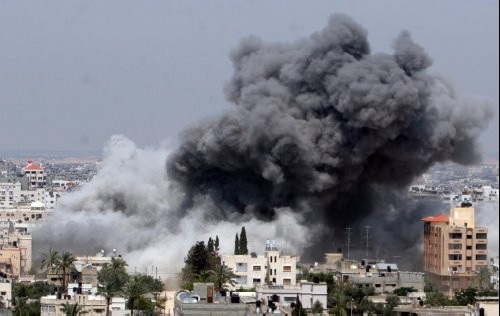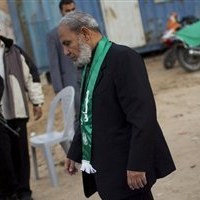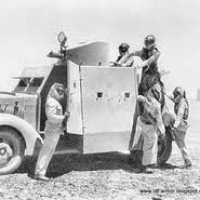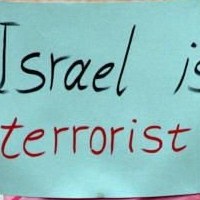Tue, July 06, 2010 | IDFSpokesperson
IDF Military Advocate General Takes Disciplinary Action, 6 Jul. 2010, Indicts Soldiers Following Investigations into Incidents during Operation Cast Lead
The IDF Military Advocate General, Maj. Gen. Avichai Mendelblit, has decided to take legal action regarding a number of incidents that occurred during Operation Cast Lead, following his examination of the findings from the investigations carried out through a number of different channels.
The Military Advocate General has decided to indict a number of officers and soldiers for their conduct during the operation. In one case, an IDF officer at the rank of Lieutenant Colonel was summoned to a disciplinary hearing for having deviated from military directives pertaining to the prohibition on the use of civilians for operational activity. In a second case, the Military Advocate General indicted an IDF Staff Sergeant for manslaughter. In a third case, the Military Advocate General ordered a criminal investigation following his review of a field investigation in order to clarify the circumstances of a specific incident. In a fourth case, disciplinary action was taken against an IDF Captain for his failed professional judgment in authorizing an attack against a terror operative.
In accordance with the Chief of the General Staff’s commitment on the matter, an ongoing, comprehensive process of examination has been carried out within the IDF since the conclusion of Operation Cast Lead, in order to study claims made by various individuals and organizations regarding IDF conduct during the operation.
Lt. Gen. Ashkenazi ordered an examination of IDF conduct, and the ethical aspects thereof, in full confidence of the moral justness of the IDF, its officers and soldiers, as well as of the IDF’s ability to examine any incident, to draw the necessary conclusions, and to take legal action as necessary. More than 150 incidents have been examined and nearly 50 investigations have been launched by the Military Police Criminal Investigations Division since the operation’s conclusion.
Furthermore, the report of the United Nations fact finding mission on the Gaza conflict (i.e. the “Goldstone Report”) was published in September 2009, presenting 30 specific incidents related to the IDF, most of which were already familiar to the IDF and were in various stages of examination prior to the report’s publication.
The examinations of the majority of incidents mentioned in the report have concluded in recent months, and their findings were transferred to the Military Advocate General for his examination and decision. The Military Advocate General has now concluded his examination and has drawn the following conclusions regarding four incidents, as follows:
Complaint by Majdi Abed-Rabo:
An investigation into a claim that a Palestinian man was used as a “human shield” was opened by the Military Police Criminal Investigations Division, in accordance with the investigative policies of the IDF, which require that a criminal investigation be opened regarding claims of this kind.
The complainant, dozens of soldiers, and commanders were all questioned during the investigation. The investigation found that a battalion commander authorized the sending of a Palestinian man into a house (adjacent to his own) sheltering terrorists, in order to convince them to exit the house. The battalion commander, not present on the scene, authorized the order following reports that the Palestinian man asked the soldiers if he could do this so as to prevent the destruction of his house if a battle were to transpire.
The Military Advocate General indicted the battalion commander because he deviated from authorized and appropriate IDF behavior, and the Israeli Supreme Court jurisdiction regarding the use of civilians during operational activity, when he authorized the Palestinian’s request to enter the house.
The disciplinary process was carried out before GOC Northern Command, Maj. Gen. Gadi Eisenkot, who convicted and warned the officer.
The Complaint by the Hajaj Family:
The original investigation into the incident was based on a claim, which also appeared in the “Goldstone Report,” that fire killed two women on January 4th, 2009, in the neighborhood of Juhar Al-Dik. It was claimed that the women were part of a group of civilians, some of whom were carrying white flags.
Palestinian witnesses and dozens of soldiers and commanders were questioned as part of the comprehensive investigation which found gaps between the testimonies given by the soldiers and those given by Palestinians. This fact made it impossible to make a criminal connection between the described incident according to Palestinian testimonies and to that described by the soldiers.
The soldiers testified that on January 5th, 2009 it was a man that was shot and killed in the same location described by Palestinian witnesses.
After reviewing the evidence, the Military Advocate General ordered that an IDF Staff Sergeant be indicted with charges of manslaughter by a military court. This decision is based on evidence that the soldier, who was serving as a designated marksman, deliberately targeted an individual walking with a group of people waving a white flag without being ordered or authorized to do so.
Despite the fact that the two events are apparently one and the same, from a judicial point of view, sufficient connections could not be made between the evidence gathered in the case of the indicted soldier and the event described by Palestinian testimonies.
The Al-Samouni Residence Incident
According to several claims, a residence in the neighborhood of Zaitun, housing about one hundred members of the Al-Samouni family, was struck from the air on January 5th, 2009. In light of the event’s complexity, the IDF Chief of the General Staff, Lt. Gen. Gabi Ashkenazi appointed an expert to investigate the incident.
After examining the findings of the investigation, Maj. Gen. Mendelblit has ordered a Military Police criminal investigation into the circumstances of the incident. The findings of the criminal investigation will be passed on to the Military Advocate General with its conclusion.
Ibrahim Al-Makadma Mosque
The claim regarding the strike against the Ibrahim Al-Makadma mosque was first examined as part of the five expert-led investigations as ordered by Lt. Gen. Ashkenazi at the conclusion of the operation. Based on aerial footage, among other evidence, it appeared that the mosque was not hit.
Lt. Gen. Ashkenazi ordered that the incident be re-examined by an additional expert after receiving several reports from various organizations, some of which were issued after the conclusion of the first investigation.
It became apparent that there was in fact an aerial strike in close proximity of the mosque, and this was communicated in an earlier report by the State of Israel to the UN. The aerial strike targeted a terror operative involved in the launching of rockets toward Israel who was standing outside of the mosque. Injuries caused to civilians inside were unintentional and caused by shrapnel that penetrated the mosque.
The investigation also showed that the officer who ordered the attack had failed to exercise appropriate judgment. Therefore, the Chief of the General Staff ordered that disciplinary actions be taken against the officer, and that he would not serve in similar positions of command in the future. The officer also stood trial for negligence before the Commander of the Ground Forces Training Center, Brig. Gen. Avi Ashkenazi, who rebuked him for his actions.
The findings of the investigation were handed over to the Military Advocate General’s Unit. The Military Advocate General decided that the attack did not violate international laws of warfare because the attack did not target the mosque, rather it targeted a terror operative, and when the attack was authorized, no possibility of harming civilians was identified. According to this assessment, the Military Advocate General decided that legal measures were not necessary.
It was also decided that legal measures would not be taken in additional incidents examined by the Military Advocate General because according to the rules of warfare, no faults were found in the forces’ actions. In other cases, there was not enough evidence proving that legal measures needed to be taken.
It should be noted that the IDF conducted the operation after eight years in which Hamas fired rockets at hundreds of Israeli civilians living in the southern communities surrounding the Gaza Strip. Despite the fire and the injuries suffered by Israel, Israel practiced a policy of restraint for a long period of time. Since Hamas’ takeover of the Gaza Strip, the terrorist organization has implanted its military system and terrorist infrastructure in the heart of urban areas while using the population as human shields. Operation Cast Lead was limited in the scope of fire and forces used. IDF soldiers operated in crowded urban areas while Hamas made deliberate and cynical use of the Palestinian population, creating a complex security situation. Hamas operated from within civilian homes, schools, kindergartens, mosques, hospitals and UN facilities while the population in the Gaza Strip was made hostage.



 RSS
RSS











IDF Military Advocate General Indicts Soldiers Following Investigations into Incidents during Operation Cast Lead #israel http://j.mp/bMrujY
RT @CrethiPlethi: IDF Military Advocate General Indicts Soldiers Following Investigations into Incidents during Operation Cast Lead #israel http://j.mp/bMrujY